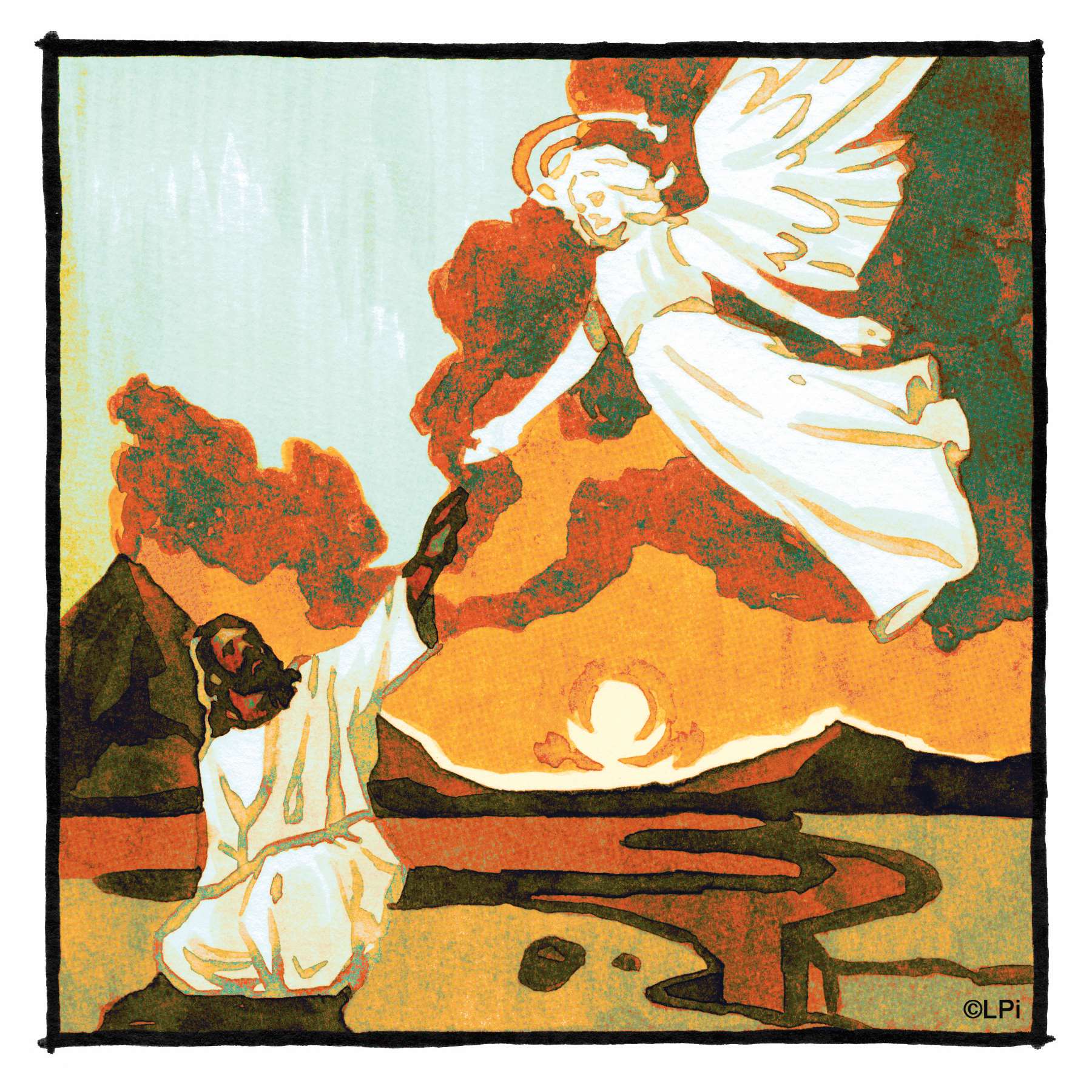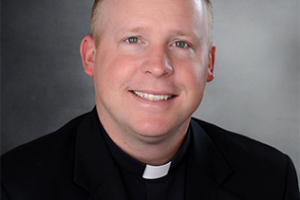
1st Sunday of Lent– (Temptation)
From this Sunday’s readings (GEN 9: 8-15; I PT 3: 18-22; MK 1: 12-15)
A mother camel and her baby are talking one day and the baby camel asks, “Mom why have we got these huge three-toed feet?” The mother replies, “To enable us to walk across the soft sand of the desert without sinking.” “And why have we got these long, heavy eyelashes?” “To keep the sand out of our eyes on the trips through the desert ”replies the mother camel. “And Mom, why have we got these big humps on our backs?” The mother, now a little impatient with the boy replies, “They are there to help us store fat for our long treks across the desert, so we can go without water for long periods.” “OK, I get it!” says the baby camel, “We have huge feet to stop us sinking, long eyelashes to keep the sand from our eyes and humps to store water. Then, Mom, why the heck are we here in the Toronto zoo?” Modern life sometimes makes one feel like a camel in a zoo. And like camels in a zoo we sometimes need to go into the desert in order to discover who we truly are. Lent invites us to enter into this kind of desert experience.
The primary purpose of Lent is spiritual preparation for the celebration of Jesus’ death and resurrection. The Church tries to achieve this goal by leading her children to metanoia or “repentance” by the reordering of their priorities and the changing of their values, ideals, and ambitions, through fasting, prayer, and self-control. Since by baptism we share the death and resurrection of Jesus, today’s readings refer to baptism directly or indirectly.
The first reading tells us how men irrevocably broke the original covenant God had made with Adam and Eve and how the merciful God selected Noah and his family to renew the covenant. Noah’s rescue from the flood symbolizes how we are saved through the water of baptism which cleanses us from sin and makes us one with Christ. In the second reading, St. Peter reminds his readers that an outward sign of the New Covenant that God made with his people through Jesus is baptism which makes us adopted children of God, heirs of heaven, and temples of the Holy Spirit. In the gospel, we are told how Jesus, immediately after his baptism, faced and defeated the tempter, during his forty days of prayer and penance in the desert.
All the synoptic gospels agree that Jesus experienced a period of temptation. Hebrews 4:15 also testifies to Jesus’ temptation episode. While Matthew and Luke give graphic descriptions of Jesus’ temptations in the desert at the completion of his forty days of fasting and prayer following his baptism in the River Jordan, Mark just reports that the Spirit led Jesus to the desert and he was tempted by Satan. The desert was the place where ancient Israel in Moses’ time was tested for 40 years. The 40 days of Jesus’ fasting may also recall the 40-day fasts undertaken by Moses (Deut 9:18) and Elijah (1 Kgs 19:8). Mark does not mention that Christ fasted for forty days and nights but the “desert” seems to imply this. Nor does Mark specify the various “temptations” as Matthew and Luke do. The temptations described by Matthew and Luke and hinted at by Mark refer probably to the main temptation Jesus faced during his public life, namely, the temptation to become a political messiah of power and fame according to the Jewish expectation, using his divine power, and to avoid suffering and death. The temptation Jesus faced and defeated helps us to understand both the conflicts that were in Jesus’ own life and those which will be found in our lives, too. Instead of yielding to the temptation, Jesus said a firm “Yes!” to his Father’s plan, even when it came to giving over his life.
Why was Jesus tempted after his baptism? The author of Hebrews uses the temptation narrative to show that the incarnate Son of God wanted to experience human life to the full, with the exception of sin. Since temptation and how we respond to it are integral parts of our lives, Jesus experienced them also. The Fathers of the Church explain that Jesus’ temptations are described after his baptism to teach us why we are tempted and how we should conquer temptations. Baptism and Confirmation give us the weapons we need to do battle with Satan. God never tempts people beyond their strength. But He permits us to be tempted. Why? Here are the five reasons given by the church Fathers: 1) So that we can learn by experience that we are indeed stronger than the tempter; 2) So that we may not become conceited over having God’s gifts; 3) So that the devil may receive proof that we have completely renounce Satan; 4) So that by the struggle we may become even stronger; and 5) So that we may realize how precious the grace we have received is.
Dear friends, repenting and fighting against temptations and evil is a lifetime’s task. Jesus did not overcome Satan in the wilderness; he achieved that only in his death. Lent reminds us that we have to take up the fight each day against evil within us and around us, and never give up. Jesus has given the assurance that the Holy Spirit is with us empowering us so that the final victory will be ours through Jesus Christ. Lent should be for us a time for personal reflection on where we stand as Christians and how well we are accepting the gospel challenges in thought, word, and deed. It is also a time for us to assess our relationships with our family, friends, work colleagues and the other people we encounter, especially in our parish.
May God bless you.
-Fr Johnson


